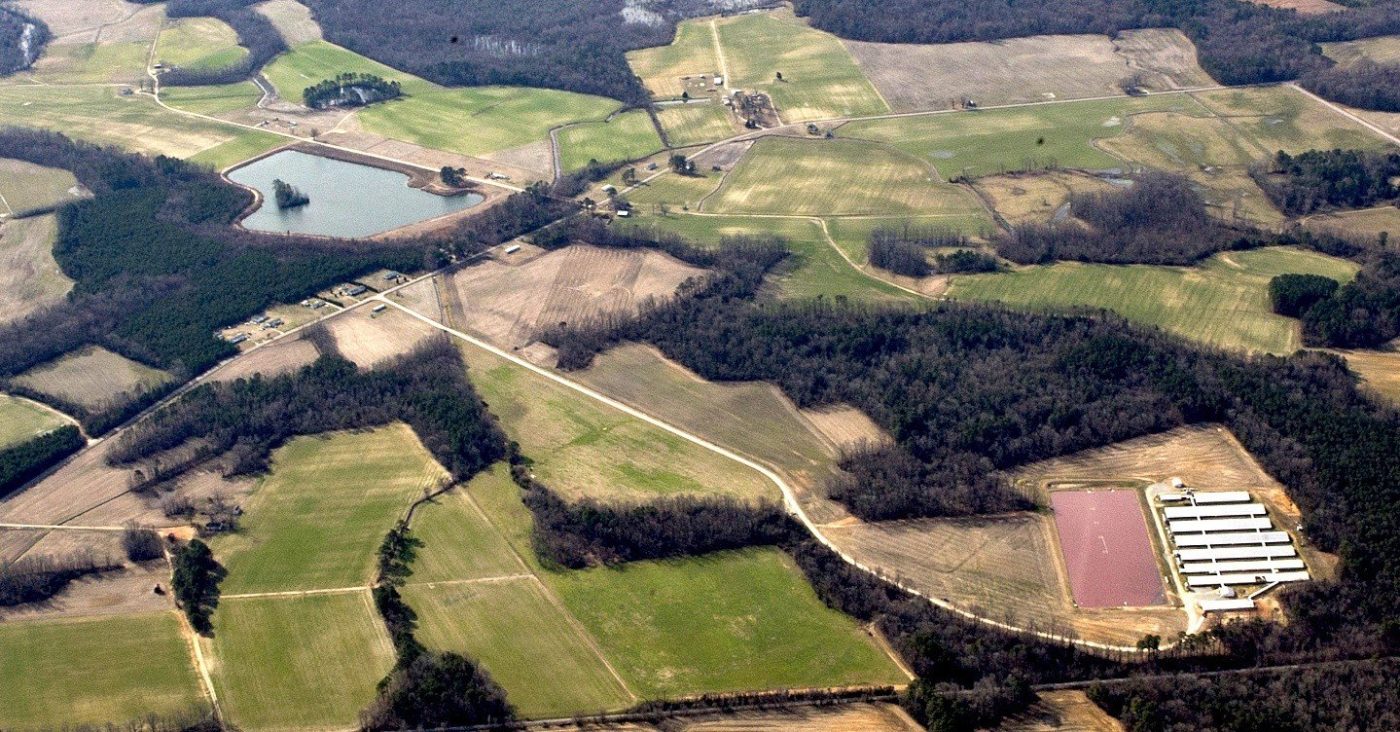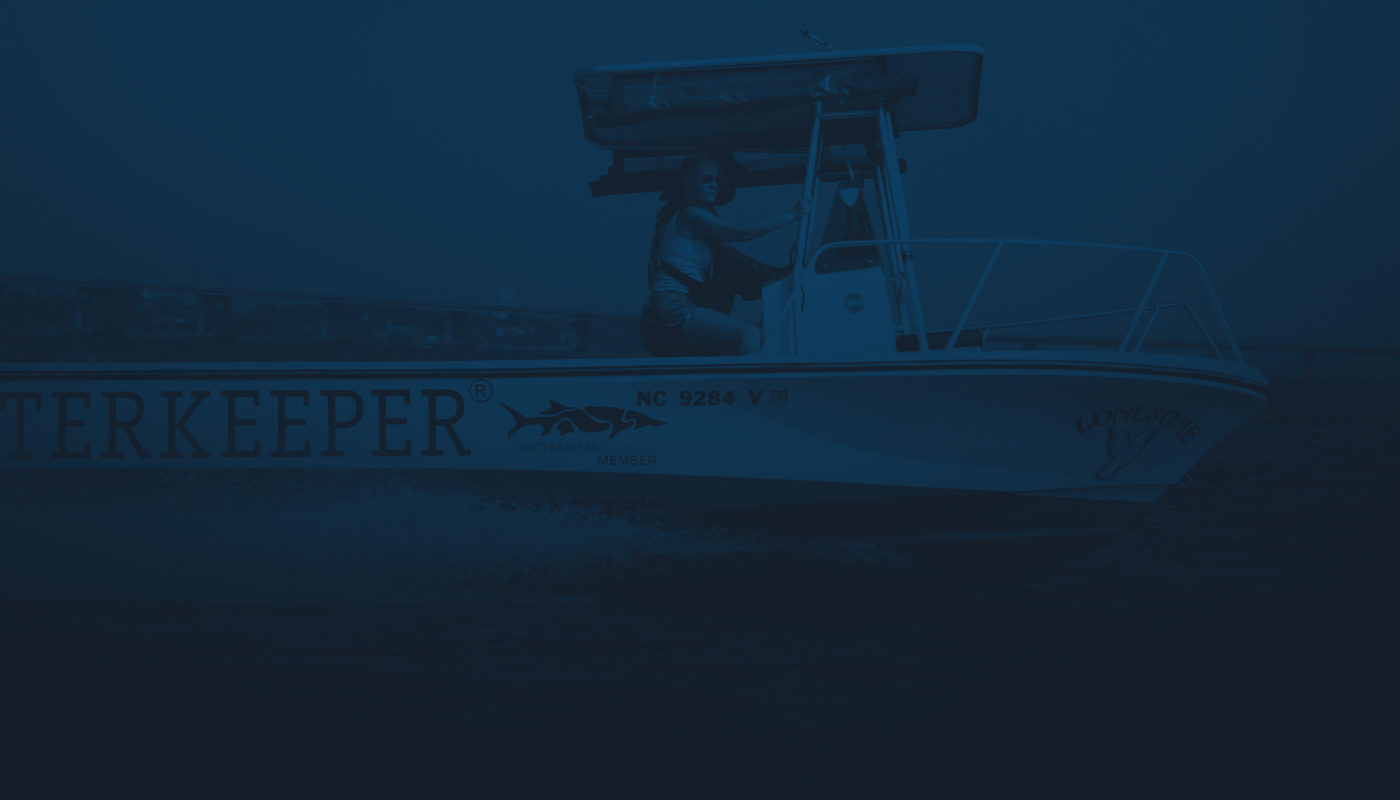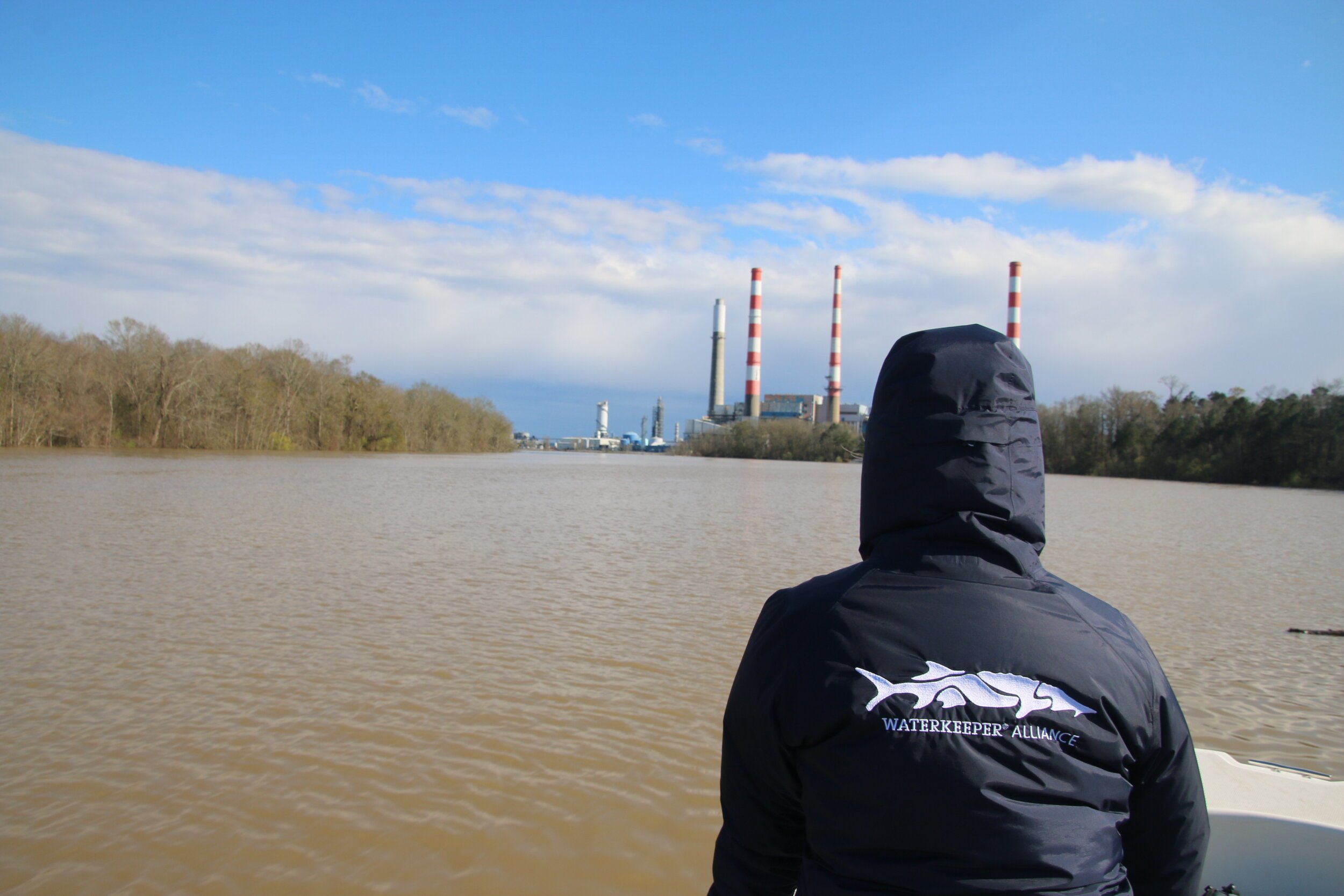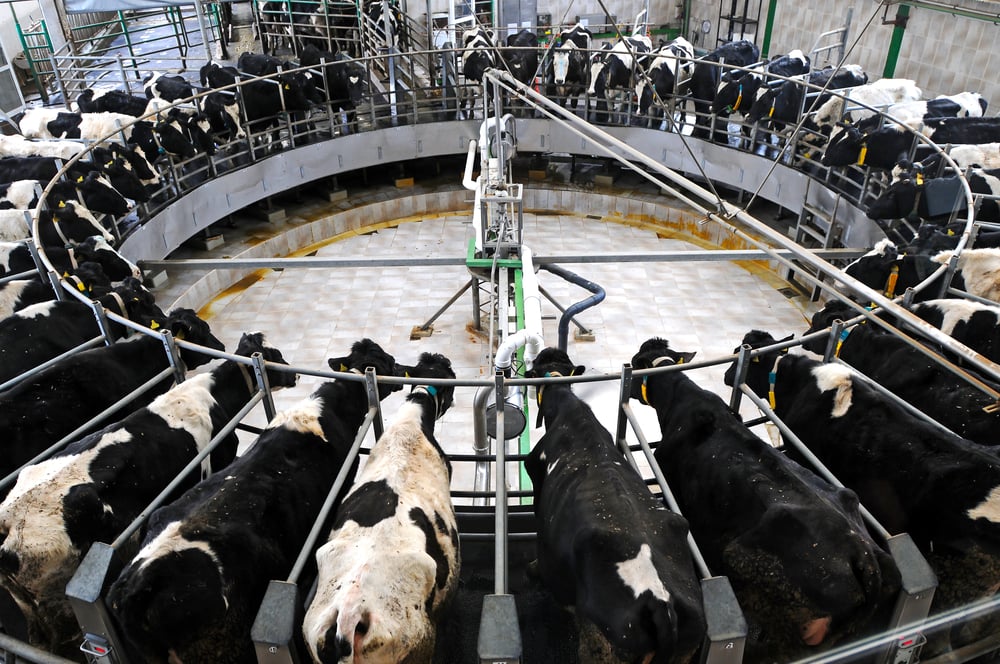The Pure Farms, Pure Waters campaign addresses the failure to regulate pollution from industrialized swine, poultry, and dairy facilities that is devastating rivers, lakes, and estuaries and lowering quality of life in our communities.
Waterkeeper Alliance educates the public and decision-makers about the impacts of industrialized livestock operations, supports communities and local farmers, and advocates for sustainable food systems. We lobby state and federal authorities to strengthen and enforce existing prohibitions on the discharge of animal waste into our waterways, seek to hold corporations that dictate facility operations accountable for waste management practices, promote sound policies that protect our waterways and support independent farmers, and take legal action against the most egregious violators.
The meat production industry was fundamentally transformed in the last half of the 20th century. Rapid industry expansion and vertical integration, led by multinational corporations, nearly destroyed the independent family farm. To maximize profits, these companies engineered a shift away from traditional production methods that involved small herds of grazing animals and on-farm feed production. Animals are now raised in enormous, confined facilities — referred to as Concentrated Animal Feeding Operations (CAFOs) — that can confine tens of thousands of animals indoors throughout their short life cycle. Thus, although national meat production has more than doubled since the 1950s, the number of farms in the United States has decreased by 80%.
The key to this industry transformation was the growth of contract farming. In the past, an independent family farmer could raise his own animals based on his professional judgment and experience. Now, by entering into contracts with growers, companies own the livestock and dictate nearly every facet of production, from the type of animals to the size of confinement facilities, right down to the sort of feed and medical treatment provided to the animals. These contracts, drafted by corporate lawyers, are often unfair to the contract grower. This is particularly true with respect to waste management. By contracting with formerly independent farmers, the controlling corporations have attempted to shift liability for the meat production pollution caused by their unsustainable, industrial-scale production methods to these farmers.
Naturally, the increased concentration of animal production led to the concentration of high volumes of waste. CAFOs can produce as much waste as a small city, but without the most basic waste treatment system to process it. And, while corporations rake in the profit generated by industry concentration, they contractually disavow responsibility for managing the waste generated by their animals. So the companies benefitting the most from industrial transformation have effectively hidden behind farmers to avoid liability for the negative externalities stemming from the new company-dictated means of production.
CAFOs frequently dispose of untreated animal sewage on adjacent croplands. Significant problems arise because growers often apply waste far in excess of the amounts needed for crop production and allow that waste to flow into local waterways, contaminating water resources and damaging the health of downstream communities. In the United States, state and federal regulators unfortunately too often turn a blind eye to this meat production pollution. A 2017 EPA report shows that only 30% of the largest industrialized livestock facilities have permits as required by the Clean Water Act to control this pollution and many of the states with the highest density of facilities have the lowest level of Clean Water Act compliance.
Learn More:
Industrial Animal Agriculture
Our food systems must transition away from relying on confined animal feeding operations (CAFOs) to more sustainable agricultural processes, for the sake of clean water, climate change, and environmental justice. CAFOs wreak havoc on local waterways, human health, and property value. These facilities are disproportionately sited in nonwhite, low-income communities. CAFOs can produce millions of gallons of animal waste, which often sit in open cesspools that are vulnerable to spilling over and contaminating drinking water sources. The only way industrial agriculture companies can sell at a lower cost than most family farmers is by avoiding responsibility for managing the animal waste that poisons our air and water.
Factory Farm Biogas
Factory farm biogas, which is generated from the excess hog waste created at Concentrated Animal Feeding Operations (CAFOs), is a false solution to climate change and should not be considered a source of clean energy. It’s dirty energy. These projects, which are predominantly sited in frontline communities, rely heavily on pipelines, which can leak methane and ruin crucial habitats like wetlands. They also compound the environmental concerns caused by CAFOs, including air and water pollution, heighten the impact of natural disasters on surrounding communities, and discourage investment in environmentally superior – and truly clean – technologies.
Chesapeake Bay
Waterkeepers Chesapeake – a coalition of 19 independent Waterkeeper organizations – is working to ensure the waters of the Chesapeake and Coastal Bays are fishable, drinkable, and swimmable. Waterkeepers Chesapeake is deeply concerned about the threat posed to the Chesapeake Bay by the massive expansion of industrial poultry operations on the Eastern Shore. Agriculture is the largest source of pollution to the Bay, and while many farmers have good intentions, there is no way around the fact that certain agricultural practices compromise public health, harm our waterways, and ignore the long-term health of the soil.
As a means to address this pollution problem, Waterkeepers Chesapeake, through its Fair Farms Campaign, is working to fix the root of this issue: our broken food system. Fair Farms brings together consumers, farmers, public health professionals, and conservationists to advocate for responsible farming practices and increased support for visionary farmers to build an equitable and sustainable food system.
China
Traditionally, the majority of livestock farming in China was family-owned and small-scale, as the consumption of meat was limited to special occasions such as the Lunar New Year. However, rapid economic growth has made the consumption of meat a more regular part of the daily diet in most households, especially within the booming middle class. In order to keep up with demand, industrial-scale livestock farming is expanding exponentially in China with the backing of the government, which invested US$1.6 billion in the construction of industrialized pig farms between 2007 and 2010. To address this rise in pollution, Chinese Waterkeepers are taking actions to encourage sustainable practices and control of industrial waste discharges by performing pollution patrols, helping farmers to comply with local regulations, and building sustainable villages.
North Carolina
Waterkeeper Alliance mobilizes a network of advocates stretching from the mountains to the coast in North Carolina to address the environmental and public health impacts of industrial animal agriculture. The integration of watershed-specific strategies, informed by local expertise and designed around shared aims, is the key to our success.
The North Carolina Pure Farms, Pure Waters campaign employs a strategic blend of public outreach and education, community support, partnership building, regulatory reform, litigation, and field investigation designed to expose and reform industry practices, clean up North Carolina’s waterways, and force the state and federal governments to enforce the requirements of the Clean Water Act. CAFOs pose a threat to communities across North Carolina. To learn more about these issues in your watershed, contact Waterkeeper Alliance or the local Waterkeeper group in your area:
Cape Fear River Watch
Catawba Riverkeeper Foundation
Dan Riverkeeper
MountainTrue
Sound Rivers
White Oak Waterkeeper
Winyah Rivers Foundation
Yadkin Riverkeeper
North Carolina is in a statewide crisis of industrial animal waste mismanagement.
United States
As control over livestock production is increasingly consolidated into the hands of a few multinational corporations, international trade agreements threaten to weaken environmental laws, open new markets, and internationally expand the industrialized production system that has polluted rivers, lakes, and coastal waterways across the United States. Domestic industrialized agriculture production—which produces roughly 1.1 billion tons of animal manure annually—is one of the largest unaddressed sources of water pollution in the United States. It is directly, and indirectly, causing coastal hypoxia, eutrophication, toxic algal blooms, pathogen contamination, water depletion, and air pollution in most U.S. states.
Through its Pure Farms, Pure Waters Campaign, Waterkeeper Alliance has participated in virtually all of the major litigation and regulatory initiatives involving the livestock production industry in the U.S. and is widely recognized for having specialized expertise in the complex legal, factual and scientific issues associated with the industry. Waterkeeper Alliance has worked to address air and water pollution from concentrated animal feeding operations (CAFOs) at the national level; regionally in the Chesapeake Bay and the Mississippi River Basin; and at the state and local level in Arkansas, Illinois, Iowa, Georgia, Maryland, New York, North Carolina, and West Virginia.

Support the Fight for Clean Water
Donate today to support drinkable, fishable, swimmable water worldwide.




